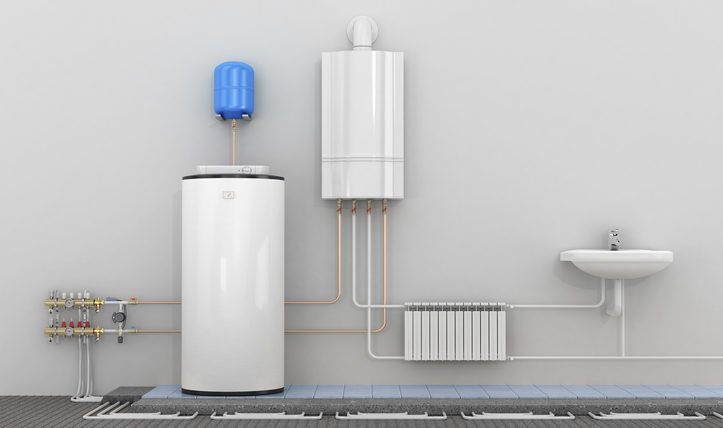Heating, ventilation, and air conditioning (HVAC) systems are critical components of commercial buildings, ensuring a comfortable and healthy environment for occupants. These complex systems require skilled professionals to design, install, maintain, and repair them effectively. HVAC contractors play a pivotal role in managing these systems, ensuring they operate efficiently and meet the needs of businesses and their employees. From planning and installation to ongoing maintenance and emergency repairs, HVAC contractors are essential partners in maintaining the functionality and efficiency of commercial building systems. We will explore HVAC contractors’ various responsibilities and contributions in commercial settings, highlighting their impact on building performance and occupant comfort.
Designing and Planning HVAC Systems
One of the primary roles of HVAC contractors in commercial buildings is designing and planning HVAC systems that meet the space’s specific needs. This process involves assessing the building’s size, layout, occupancy and intended use to determine the most suitable heating, cooling, and ventilation solutions. Contractors must consider energy efficiency, system capacity, and building codes when designing HVAC systems, ensuring optimal performance and comfort.
In addition to technical considerations, HVAC contractors collaborate with architects, engineers, and building owners to align the HVAC system design with the project’s overall goals. This collaboration ensures that the HVAC system is integrated seamlessly into the building’s infrastructure, supporting its architectural and functional requirements. By carefully planning and designing HVAC systems, contractors are crucial in optimizing energy use and enhancing indoor environmental quality in commercial buildings.
Installation and Commissioning
Once the design phase is complete, HVAC contractors install and commission the system. This involves selecting appropriate equipment, coordinating with suppliers, and managing the installation process to ensure everything is set up correctly. The installation process requires precision and attention to detail to ensure that all components, such as ducts, vents, and mechanical systems, are installed according to specifications and building codes.
During commissioning, HVAC contractors test the system to verify its performance and functionality. This includes checking for leaks, calibrating controls, and ensuring all components work together seamlessly. Proper commissioning is essential to optimize the system’s efficiency and performance, minimizing energy consumption and reducing the risk of future issues. By overseeing the installation and commissioning process, HVAC contractors ensure that commercial buildings have reliable and efficient HVAC systems that meet their occupants’ needs.
Maintenance and Preventive Care
Maintenance and preventive care are vital aspects of HVAC contractors’ roles in commercial buildings. Regular maintenance helps ensure that HVAC systems operate efficiently and reliably, reducing the likelihood of unexpected breakdowns and costly repairs. HVAC contractors develop and implement maintenance schedules that include inspecting and cleaning components, replacing filters, and checking refrigerant levels.
Preventive maintenance is essential for identifying and addressing potential issues before they become major problems. By conducting regular inspections and tune-ups, HVAC contractors can extend the lifespan of equipment and maintain optimal performance. This proactive approach minimizes downtime and repair costs and helps maintain indoor air quality and comfort levels for building occupants. Through regular maintenance and preventive care, HVAC contractors contribute significantly to commercial HVAC systems’ long-term success and efficiency.
Energy Efficiency and Sustainability
HVAC contractors are crucial in promoting energy efficiency and sustainability in commercial buildings. They help building owners and managers identify opportunities to reduce energy consumption and minimize environmental impact through efficient HVAC solutions. This may involve recommending energy-efficient equipment upgrades, optimizing system settings, or implementing advanced technologies such as building automation systems.
In addition to equipment upgrades, HVAC contractors can advise on practices that enhance energy efficiency, such as proper insulation, duct sealing, and regular maintenance. By focusing on energy efficiency and sustainability, HVAC contractors contribute to reducing the carbon footprint of commercial buildings, aligning them with environmental goals and regulatory requirements. These efforts can also result in cost savings for building owners by lowering utility bills and enhancing the property’s overall value.
Emergency Repairs and System Upgrades
In addition to routine maintenance, HVAC contractors are responsible for handling emergency repairs and system upgrades in commercial buildings. Unexpected breakdowns can disrupt operations and affect occupant comfort, making prompt and effective repairs essential. HVAC contractors have the skills and tools to diagnose and resolve issues quickly, minimizing downtime and ensuring systems are restored to full functionality.
As technology advances and building requirements change, HVAC contractors assist with system upgrades and retrofits. This may involve replacing outdated equipment with modern, energy-efficient alternatives or expanding the system to accommodate building use or occupancy changes. By staying informed about the latest HVAC technologies and trends, contractors can provide valuable guidance on upgrades that enhance system performance and meet evolving needs. Through their expertise in emergency repairs and system upgrades, HVAC contractors help commercial buildings maintain reliable and efficient HVAC systems.
Conclusion
HVAC contractors are essential in managing and maintaining commercial building systems, ensuring optimal performance, energy efficiency, and occupant comfort. From designing and planning HVAC systems to overseeing installation, maintenance, and repairs, contractors provide invaluable services supporting commercial building functionality and sustainability. Their efforts in promoting energy efficiency and sustainability contribute to reducing environmental impact and lowering operating costs for building owners. By understanding and appreciating the diverse roles of HVAC contractors, businesses can make informed decisions about their HVAC systems, ensuring they meet the needs of their occupants and enhance the overall value of their properties.

